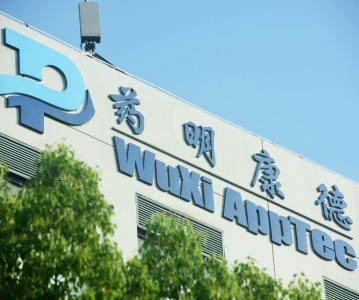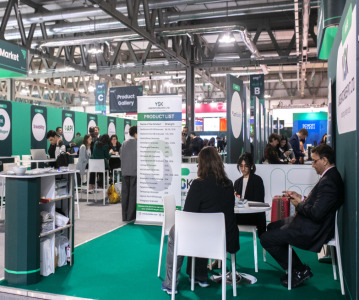Activartis Receives Orphan Drug Designation for its Cancer Immune Therapy AV0113

The European Medicines Agency recently awarded the Austrian biotech company Activartis an Orphan Drug Designation for its innovative Cancer Immune Therapy AV0113
Vienna, Austria, March 7, 2013 / B3C newswire / - The European Medicines Agency recently awarded the Austrian biotech company ctivartis an Orphan Drug Designation for its innovative Cancer Immune Therapy AV0113. The Orphan Drug Designation applies specifically to the use of AV0113 for the treatment of glioma, a type of brain tumour, which afflicts around one in 10.000 people in the EU. The term Orphan Disease refers to rare diseases which do not attract much interest in the way of research and development and thus for which there are no appropriate treatments available.
Activartis’ AV0113 Cancer Immune Therapy can basically be used to fight every type of cancer. The therapeutic technology is based on a patented procedure in which a cancer patient’s immune system is primed to fight the tumour and eventually control its growth. This is based on the use of Dendritic Cells, the key regulatory elements of the immune system, that are just as the tumour tissue derived from the patient.
Active cancer immune therapy based on Dendritic Cells
AV0113 activates the patient’s immune system, with tumour cells being identified on the basis of their antigens and destroyed. The therapy makes use of elements and mechanisms of the immune system and gets to work where these fail. As tumour cells are the body’s own tissue, the immune system normally doesn’t identify them as dangerous. Activartis’ AV0113 Cancer Immune Therapy “tricks” Dendritic Cells, and onsequently a cancer patient’s immune system, into doing the right thing, i.e. to perceive the tumour as a threat and to trigger adequate defence mechanisms.
The Dendritic Cells are charged with tumour-derived antigens, determinants that distinguish a tumour cell from a normal cell. These antigens are processed by the Dendritic Cell and shuttled to the cell surface in order to present them to T-cells. This, however, is not sufficient to prime an immune response against the tumour antigens. The “trick” referred to above is contacting Dendritic Cells with a microbial danger signal. Certain molecules, that are present in microorganisms but not in higher organisms signal the Dendritic Cell the presence of a microorganism in its surroundings and hence danger to the organism.
As tumour cells originate from a cancer patient’s normal cells, they do not provide such danger molecules for recognition by the Dendritic Cell. The critical and unique part of Activartis’ AV0113 technology is exposing tumour antigen-charged Dendritic Cells to one of these danger molecules: Lipopolysaccharides, the bacterial endotoxins. This causes the Dendritic Cell to assume a potently immune stimulatory and
pro-inflammatory mode of action. Upon returning these Dendritic Cells to the patient they activate tumour-specific T-cells, most importantly the so-called Cytotoxic T-cells, which become enabled to recognise and destroy tumour cells
Related News
-
News WuXi to sell CGT manufacturing unit to US-based Altaris LLC
At the tail end of 2024, Chinese-based CDMO WuXi AppTec announced the signing of their deal with private equity firm Altaris LLC, confirming the sale of WuXi Advanced Therapies, the cell and gene therapy manufacturing arm of WuXi AppTec. -
News Women in Pharma: Our hopes for 2025 and beyond
Our last instalment for 2024 of the Women in Pharma series brings you messages direct from the Informa Markets CPHI team as they discuss the advice and insights they have carried throughout their roles working at CPHI, and what they hope to see for the... -
News CPHI Milan Wrap-Up Report: Conference Highlights
Discover the emerging and trending topics of the pharmaceutical industry with our CPHI Milan Conference Highlights, with exclusive insight from pharmaceutical leaders and experts! -
News BIOSECURE Act not included in key defense spending bill for 2025
On December 7, 2024, the Biden administration revealed the 2025 National Defense Authorization Act, an annual defense bill specifying the budget and expenditures of the US Department of Defense. The controversial BIOSECURE Act was notably missing from ... -
News Lessons from CPHI Milan 2024: Sunny Intervals for Pharma Manufacturing?
As the 2024 CPHI conference wrapped up in Milan, we caught up with L.E.K. Consulting – a global strategy consulting firm with deep expertise in pharma manufacturing – to discuss evolving market perspectives and business outlook. -
News Trump 2.0: What does the US election result mean for the healthcare industry?
After Trump won the Presidential election in the US in early November, we take a look at some of the implications a new Trump administration could have on the health and pharmaceutical industry, and on US patients. -
News Women in Pharma: Reflections from Behind the Scenes
In this instalment of our monthly series, the team that brings you the Women in Pharma series each month sits down for a heart-to-heart on what the series means to them, and how they hope to continue their work in the future. -
News Scaling the Industry: CPHI Scale-Up Market interview with YSK Laboratories
For the first time, CPHI Milan hosted the CPHI Start-Up Market, expanding support for emerging and small-sized enterprises in their transition to the next level of growth. In this interview, we spoke with Yuvansh Khokhani, Managing Director of YSK Labo...
Position your company at the heart of the global Pharma industry with a CPHI Online membership
-
Your products and solutions visible to thousands of visitors within the largest Pharma marketplace
-
Generate high-quality, engaged leads for your business, all year round
-
Promote your business as the industry’s thought-leader by hosting your reports, brochures and videos within your profile
-
Your company’s profile boosted at all participating CPHI events
-
An easy-to-use platform with a detailed dashboard showing your leads and performance

.png)





